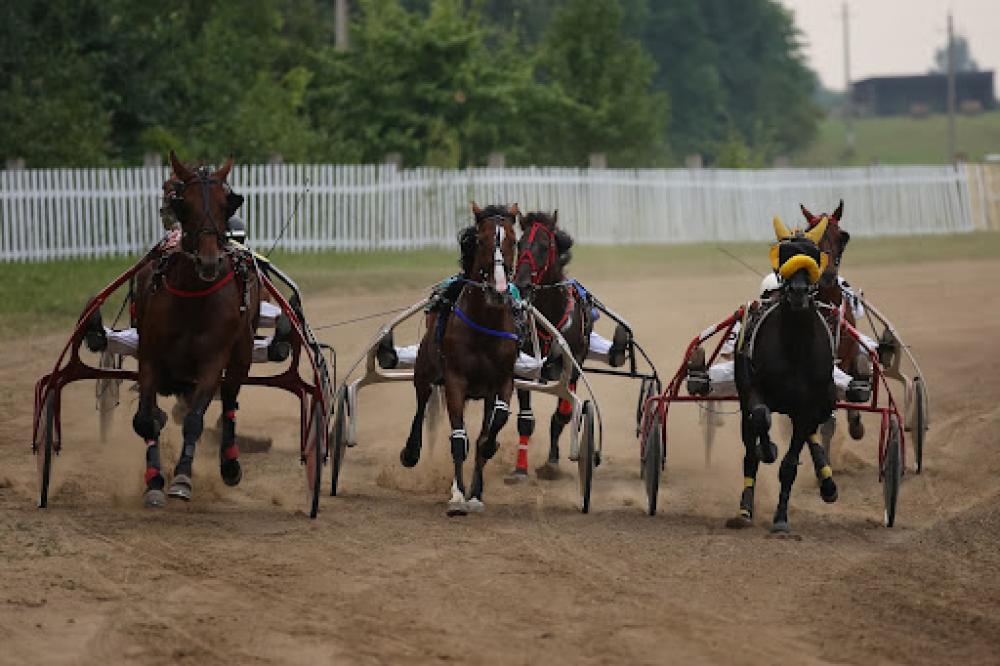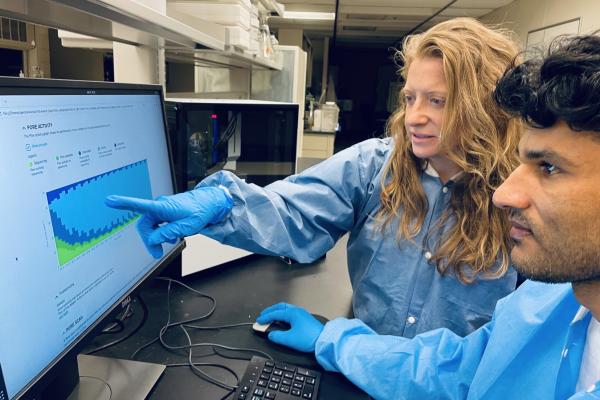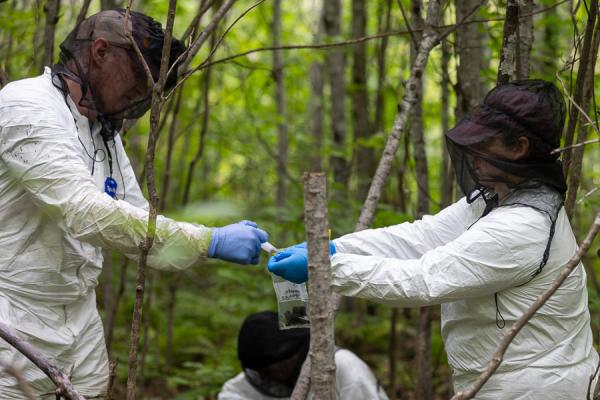Racing toward a healthier future
April 20, 2023

Image courtesy Nicole Tate
Dr. Nicole Tate, CVM alumna and postdoctoral researcher in the Veterinary Comparative Genetics Laboratory, received a $225,000 grant from the USDA National Institutes of Food and Agriculture to study performance traits and their relationship to prevalent diseases in Standardbred racehorses. Ultimately, the research will lead to the development of a genetic tool that will allow Standardbred breeders to select for elite performance while selecting away from disease.
The Standardbred industry aims to produce racehorses capable of elite performance (i.e., a high earning potential). However, previous work and anecdotal evidence suggests that diseases including osteochondrosis (OC), recurrent exertional rhabdomyolysis (RER), and exercising cardiac arrhythmias/sudden death occur more frequently in elite performers. These three diseases contribute to the number of racetrack breakdowns, injuries, and sudden deaths—all of which are welfare and safety issues for participating horses and people. The high prevalence of OC (10-26%), RER (26%), and exercising arrhythmias (50%) in Standardbreds are a rising concern. The industry clearly needs accurate information regarding the relationships between disease and performance, and tools that will allow breeders to effectively breed for performance and away from disease.
The research team in the Veterinary Comparative Genetics Laboratory, as well as collaborators, are already developing predictive tests for OC, RER, and cardiac arrhythmias. However, the ability to select for performance is missing. Tate will use raceline data provided by the US Trotting Association to quantify the relationships between 33 performance measures (e.g., lifetime earnings, fastest race times, and length of career) and RER, OC, and arrhythmias. Additionally, genetic data from >3,500 Standardbreds will be used to determine heritability and develop and validate a model to predict performance traits.
“As someone who has been involved in the industry for more than a decade, Standardbred racehorses are a true passion of mine. I have seen the consequences of these diseases first hand. They affect not only the horses, who genuinely love what they do, but also those who work with and care for them,” says Tate. “My goal with this work is to enable the industry to make informed breeding decisions that will not only produce fast and athletic racehorses, but also ensure they are able to have long, healthy racing careers.”


